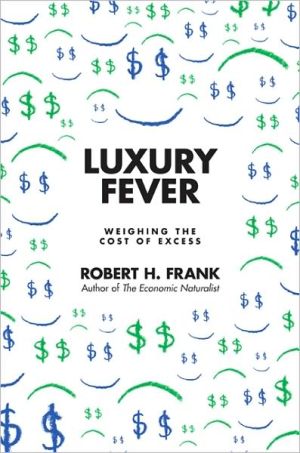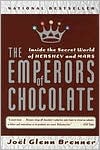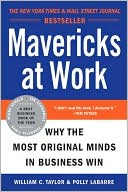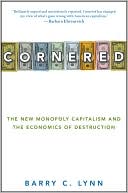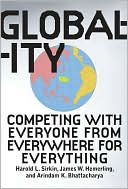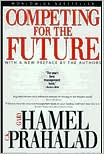Luxury Fever: Money and Happiness in an Era of Excess
The turn of the twenty-first century witnessed a spectacular rise in gross consumption. With the super-rich setting the pace, everyone spent furiously in a desperate attempt to keep up. As cars and houses grew larger and more expensive, the costs were enormous—not only monetarily but also socially. Consumers spent more time at work and less time with their family and friends; they saved less money and borrowed more.\ In this book, Robert Frank presents the first comprehensive and accessible...
Search in google:
A new luxury fever has America in its grip--the past two decades have witnessed a spectacular and uninterrupted rise in luxury consumption. Ordinary, functional goods are no longer acceptable. Our cars have gotten larger, heavier, and far more expensive. As the super rich set the pace, everyone else spends furiously in a competitive echo of wastefulness. The costs are enormous: we spend more time at work, leaving less time for family and friends, less time for exercise. Most of us have been forced to save less and spend and borrow much more. Frank offers the first comprehensive and accessible summary of scientific evidence that our spending choices are not making us as happy and as healthy as they could. The good news is that we can do something about it. Luxury Fever boldly offers a way to curb the excess and restore the true value of money. Sunday Times London,October 8th, 2000 - D.J. Taylor One does not have to be the kind of person who complains about fat- cat City salaries to wonder whether certain wealthy people are not, on the one hand, rich beyond utility, and spending their money on things that no sane consumer needs, on the other. Robert Frank's thoughtful study of conspicuous consumption takes most of its evidence from the other side of the Atlantic. Even so, what he turns up has a dreadful fascination.
Acknowledgments1Money Well Spent?12The Luxury Spending Boom143Why Now?334The Price of Luxury455Does Money Buy Happiness?646Gains That Endure757Our Forgotten Future948Excellent, Relatively Speaking1079Why Context and Position Are So Important12210Smart for One, Dumb for All14611Understanding Conspicuous Consumption15912Self Help?17313Other Failed Remedies19414Luxury Without Apology20715Equity Versus Efficiency: The Great Trade-Off?22716We Can't Afford It?25117Cash on the Table266Endnotes281References295Index317
\ USA TodayLuxury Fever is an important book. . . . It's admirable that an economist makes use of the research of behavioral biologists and evolutionary psychologists to explain why consumers spend as they do.\ \ \ \ \ Times Literary SupplementFrank's analysis should be just as interesting to those who do not share his political position as to those who do.\ — Samuel Brittan\ \ \ Sunday TimesOne does not have to be the kind of person who complains about fat-cat City salaries to wonder whether certain wealthy people are not, on the one hand, rich beyond utility, and spending their money on things that no sane consumer needs, on the other. Robert Frank's thoughtful study of conspicuous consumption . . . has a dreadful fascination.\ \ \ \ \ The IndependentThe shop-till-you-drop, 'retail therapy' culture may have become more dominant in the last few years. . . . But are we really any happier for it? One person who thinks we are not is Robert Frank . . . whose new book, Luxury Fever, has been causing a bit of a stir. . . . The burst of consumerism in the U.S. . . . gives a new bite to these well-rehearsed concerns.\ \ \ \ \ Times Literary SupplementFrank's analysis should be just as interesting to those who do not share his political position as to those who do.\ \ \ \ \ D.J. TaylorOne does not have to be the kind of person who complains about fat- cat City salaries to wonder whether certain wealthy people are not, on the one hand, rich beyond utility, and spending their money on things that no sane consumer needs, on the other. Robert Frank's thoughtful study of conspicuous consumption takes most of its evidence from the other side of the Atlantic. Even so, what he turns up has a dreadful fascination.\ —Sunday Times London,October 8th, 2000\ \ \ \ \ Cass R. SunsteinFrank's distinctive contribution is to argue that an understanding of the consumption treadmill shows that a progressive consumption tax would make many people better off while making few, if any, worse off.\ — The New Republic\ \ \ \ \ David Brooks...Frank has come up with a plan....[He] uses neuroscience to prove that we would all be happier if we were liberals...\ — National Review\ \ \ \ \ Richard Houston...Frank amasses prodigious evidence of America's wasteful ways....[T]he author borrows the rhetoric of Darwinian analysis from conservatives to explain the acquisitive compulsion...\ — WQ: The Wilson Quarterly\ \ \ \ \ Kirkus ReviewsA scientific attack on luxury that, though a little preachy, is not just an ascetic diatribe. Despite the truism that you can't buy happiness, most people believe more money will make them happy. The reason for this self-deception, Frank (co-author with Philip J. Cook of The Winner-Take-All Society, 1995) argues, is that unlike the hypothetical independent agents of economic theory, real people compare themselves to others when formulating desires. Indeed, externally derived indicators of what we "need" are so powerful in shaping choices that "on the best available scientific evidence, we seem not to be spending our money in the ways that would most promote our own interests." Consideration of what truly makes people happy would lead to, for example, buying smaller homes and less expensive cars and diverting the resources saved into "less conspicuous forms of consumption," like more time for family and friends. Questioning the wisdom of working longer hours to facilitate buying more expensive toys and thereby sacrificing the time to play with them is nothing new, of course, but what sets Frank's effort apart is his refusal to be a moral nag. Rather than beating us over the head with the puritannical strains of American culture, he presents systematic evidence that conspicuous consumption fails to achieve its intended goals. Having made his case that opulence at the top of the economic pyramid is skewing individual decisions throughout society in objectively unfortunate ways, he then proposes a progressive consumption tax as a way to rein in spending on luxuries by the rich. He closes the volume with a vigorous argument against trickle-down economics and for the proposition thatprogressivity embedded in a consumption tax will invigorate the economy. The chances that his ideas will be widely embraced are, of course, approximately equivalent to the chances that manufacturers will stop using human envy to sell their products, but they are nevertheless worth considering.\ \
